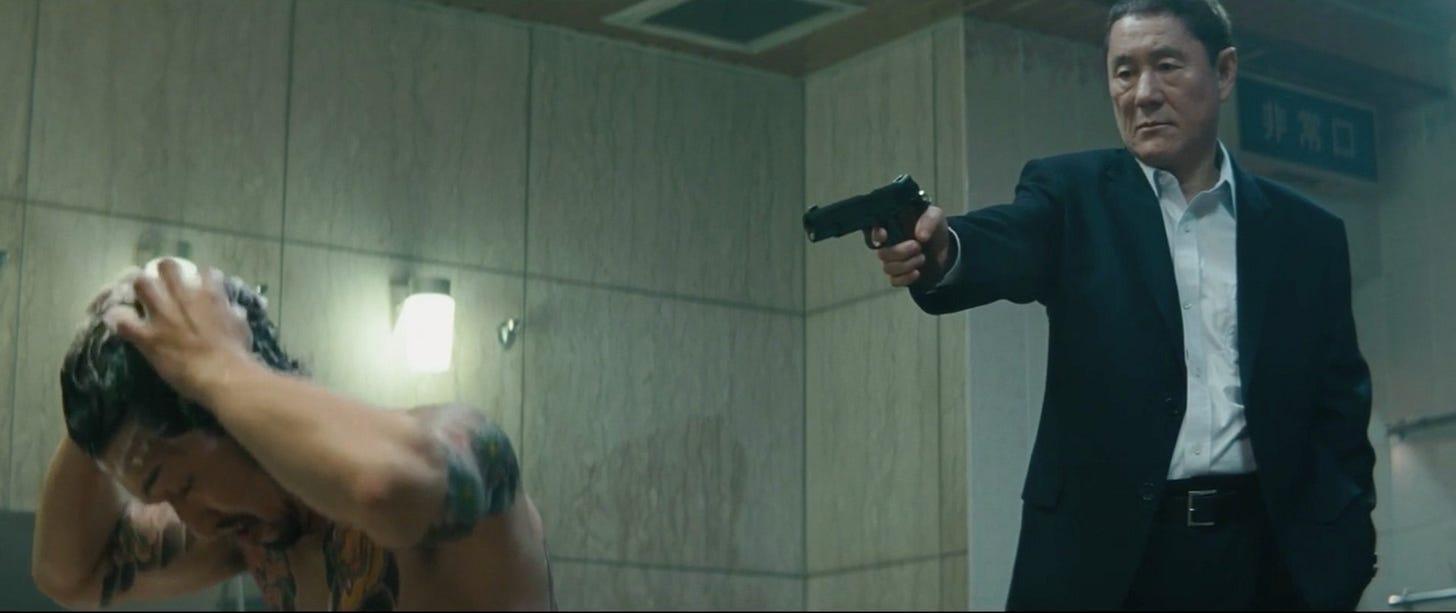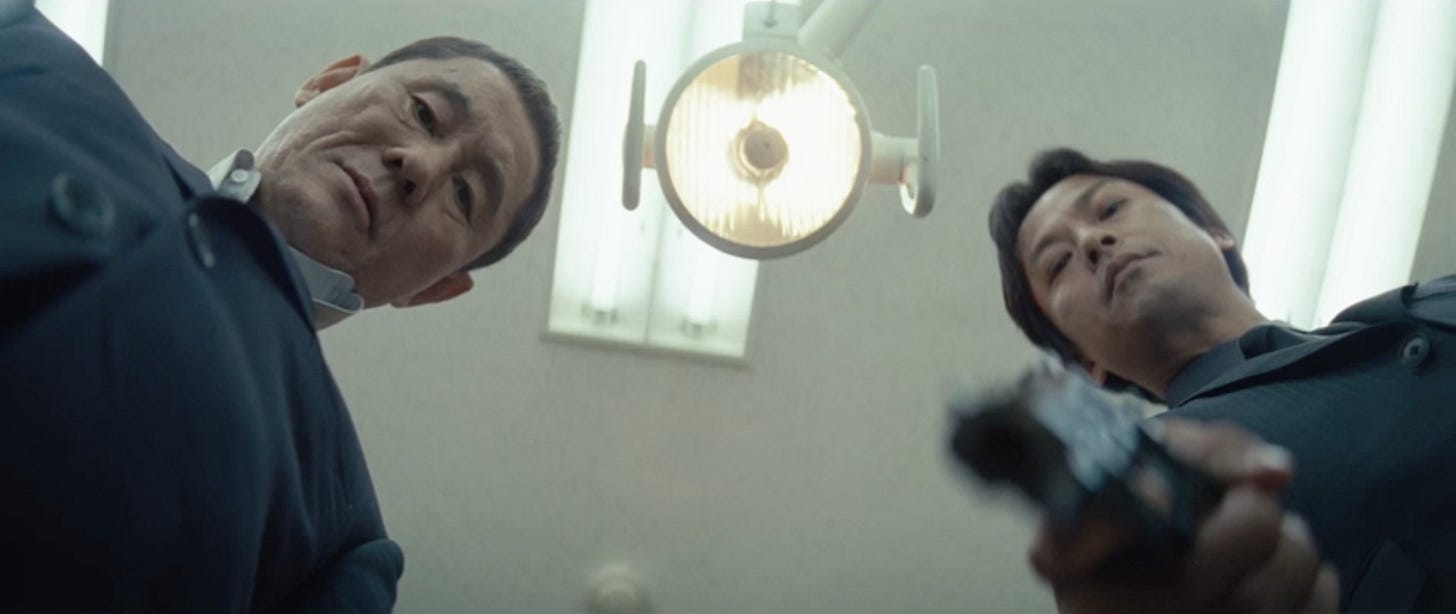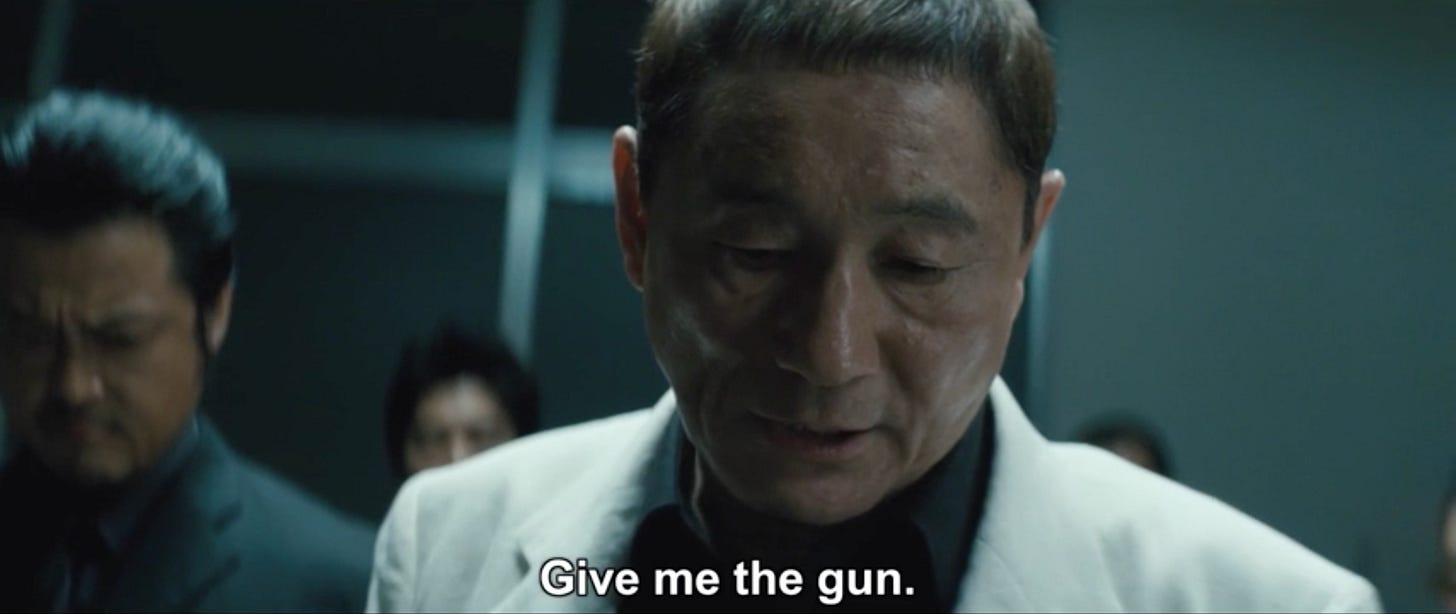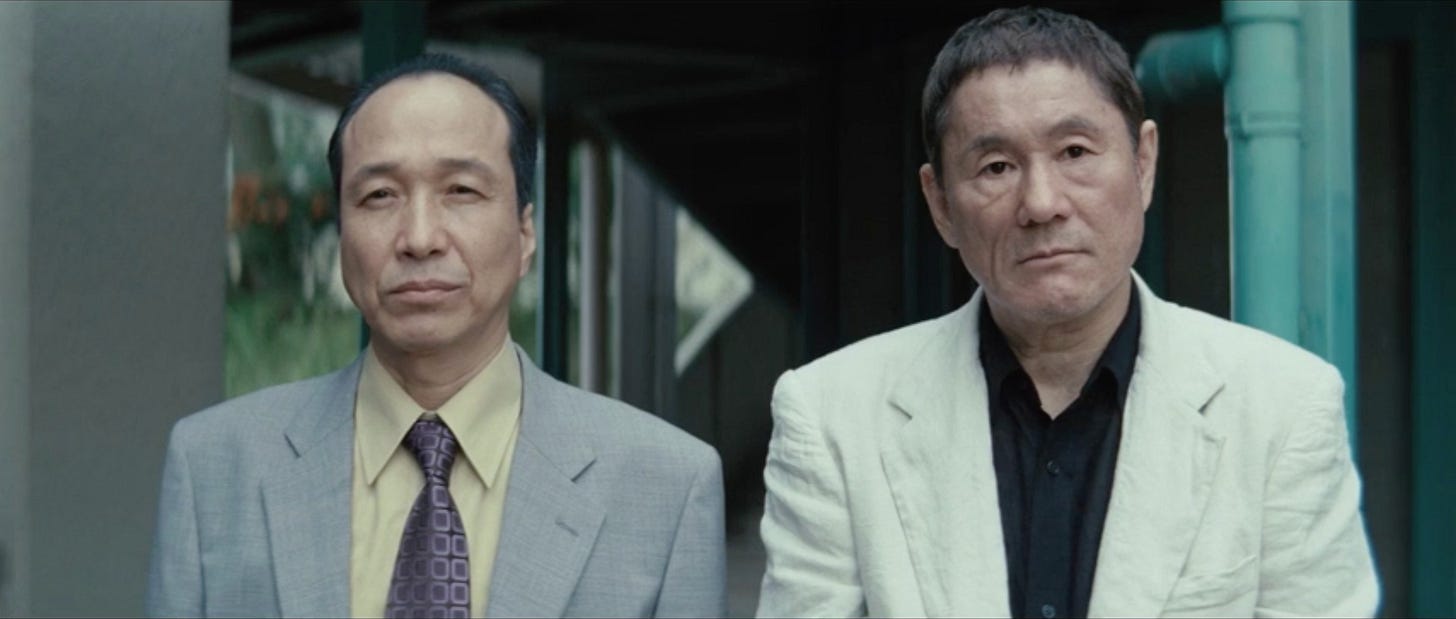Hi, I’m Bryan and this is my newsletter, Beat Happenings. Each installment focuses on Japanese comedian, TV host, actor, and filmmaker Takeshi Kitano, a.k.a. Beat Takeshi, and one of his yakuza films. This week, Kitano’s return to the genre after a decade-long absence, Outrage (2010).

Beat Takeshi in Outrage (2010)
By the second half of Takeshi Kitano’s 2000 film Brother, it was clear he had tired of the yakuza genre. And for the rest of the decade, he would avoid it completely, focusing his energy on impenetrable art films (Dolls), a surrealistic semi-autobiographical trilogy (Takeshis’, Glory to the Filmmaker!, and Achilles and the Tortoise), and a delightful samurai movie (Zatōichi) that ends with an incredible dance number straight out of a classic Hollywood musical. But as soon as the aughts were over, Kitano decided to return to the type of feature that had made him a success as a filmmaker. The result was his most nihilistic film yet, Outrage.
In the movie, Kitano plays Otomo, the no. 3 in a medium-sized Tokyo gang that’s part of the much bigger Sanno-kai crime family. Although he seems like an upstanding enough guy, the same can’t be said of anyone else in the gang or family, including its leader, Mr. Chairman (played by Soichiro Kitamura), and his lieutenant, Kato (Tomokazu Miura). The film begins with Otomo being asked to help his boss, Ikemoto (Jun Kunimura), break a pledge to another gang leader, a move that sets off a string of betrayal, screaming matches, and savage gangland murders that doesn’t let up end until the film’s final shot.

What sticks out to me the most about Outrage is its brutality. It’s nearly two solid hours of gangsters viciously attacking each with box cutters, dental drills and chopsticks. The movie has more in common with a Takashi Miike film than it does with Sonatine or even Violent Cop. Gone are the artful tangents, dreamy beach scenes, and deadpan jokes from Kitano’s previous movies. In their place is something a whole lot bleaker and mean spirited. There’s no time for character development or sentimentality, just action. And there’s a very clear reason for this. At their best the yakuza (and cops, because it’s clear they’re one and the same to Kitano) aren’t to be trusted, at their worst, they’re blood-thirsty murderers more than happy to kill their father or brother.
I’ve been thinking a lot about Clint Eastwood since reading Roger Ebert’s review of Brother (which he also thought was a bit of a stinker) last week. In that piece, Ebert named Eastwood as the western actor most similar to Beat Takeshi. He sees less in common with their directing styles, but admits there are some similarities there too. I think this has become even more true over the last two decades and nowhere is this more apparent than in Outrage and its two sequels.

Kitano started working on Outrage in his early 60s. It’s an old man film and feels a lot like the movies Eastwood has been making since Gran Torino in 2008. It’s a technically proficient, straight forward film by someone who has mastered the craft (even if the results are sometimes “charmingly amateurish,” as a friend once said) and is now using it to comment on the ills of contemporary society. But as similar as these movies may look and feel, the thing the two artists are trying to accomplish couldn’t be more different.
Eastwood’s movies tend to focus on taciturn John Wayne types who feel like the world around them has gone to hell and refuse to sit back and take it anymore. And Otomo is just like these men. But Kitano isn’t paying tribute to him. He may have a code of honor that his peers lack, but he’s still a gangster. To the director, this is exactly how the yakuza have always been and all Otomo, Ikemoto, Kato, and Mr. Chairman have done is help maintain this status quo. As far as Kitano is concerned, these men are worthy of one thing and one thing only: contempt.

That’s it for the sixth installment of Beat Happenings. Next issue, I’ll be writing about Outrage’s sequel, Beyond Outrage. If this week’s issue has piqued your interest at all, you can stream Outrage for free on Tubi or rent it via iTunes and YouTube Movies. In the meantime, I’d love to hear any comments or suggestions you may have about the newsletter. Just reply to this email and let me know what you think.


